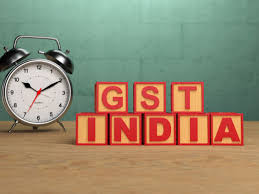The GST Council tweaked rules on Friday to make life simpler for small businesses and exporters and also cut rates on 27 products , including man-made yarn, which was a key demand of the textiles sector, in a bid to mollify those complaining about the new tax regime.
While the main focus was on reducing the compliance burden for a majority of taxpayers+ who contribute a minuscule part of the revenue, the move to reduce the rate on man-made fibre was meant to comfort businessmen in states such as Gujarat, where assembly elections are due later this year.
Similarly, the tax rate on rotis and khakra was cut along with savouries and ayurvedic and homoeopathic medicines.
GST Council’s decision to help small, medium businesses: PM
Prime Minister Narendra Modi, who had promised on Wednesday to remove all impediments, was quick to comment that the council’s decisions would immensely help small and medium businesses, which have been complaining the most. “Good and simple tax becomes even simpler. Today’s recommendations will immensely help small and medium business… GST is in line with our constant endeavour to ensure interests of our citizens are safeguarded and India’s economy grows,” he tweeted hours after finance minister Arun Jaitley announced the changes at a press conference.
After day-long deliberations, the Centre and the states agreed to put in place a new mechanism that will allow those with a turnover of up to Rs 1.5 crore — which make up for over 90% of the base but only 5% of the tax collections — to file returns every quarter.
At the same time, Jaitley promised that none of the large businesses, which will have to file monthly returns, will be denied credit for the taxes paid by their smaller vendors.
In addition, the government has allowed traders, manufacturers and restaurants with turnover of up to Rs 1 crore, instead of the Rs 75-lakh cap earlier, to opt for the composition scheme that will reduce their compliance burden by paying a flat rate of tax ranging between 1% and 5%. In addition, the deadline for the reverse charge mechanism was also extended.
“If you look at the GST pattern, the large players provide substantial taxation. SMEs pay nil or nominal tax but have high compliance pressures,” Jaitley said.
There was also a major relief package for exporters, who have been complaining of funds getting locked up due to the absence of refunds and tax credits. Jaitley acknowledged that funds were blocked, impacting the cash liquidity of exporters.
As a result, the GST Council has decided to exempt those covered by the advance authorisation scheme, export promotion capital goods or 100% export-oriented units from paying taxes on inputs till March. Merchant exporters will pay 0.1% GST for purchases from domestic players.






